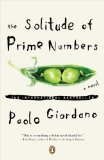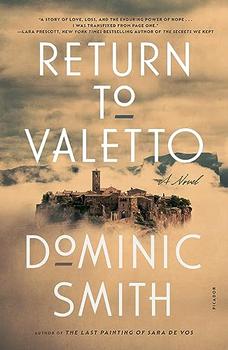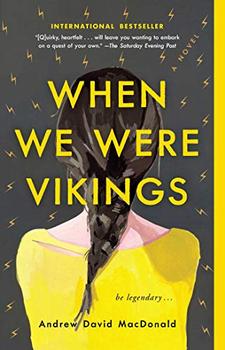Summary | Excerpt | Reading Guide | Reviews | Beyond the book | Read-Alikes | Genres & Themes | Author Bio

Critics' Opinion:
Readers' Opinion:
First Published:
Mar 2010, 288 pages
Paperback:
Mar 2011, 288 pages
 Book Reviewed by:
Book Reviewed by:
Beverly Melven
Buy This Book
Those who have an interest in psychology - we who are obsessed with why people do the things they do, all the inner workings of humans - will find much to like here. Virtually all of this book happens inside someone's head (mostly Alice and Mattia, but we do get a glimpse of parents and other characters). The tiny instances that become founding principles in a person's actions; the thoughtless word or action that ruins a relationship - these things are laid bare in the lives of two children as they grow to adulthood. I completely forgot that the story was set in Italy until more than halfway through the book. Maybe that's an artifact of the translation, but I don't believe so. There is little exterior detail and an abundance of interior landscape to be explored.
It took me until the third chapter to really warm up to this book. Not because the writing isn't great, or the characters are unsympathetic - neither is true. I think the real reason is because Paulo Giordano is so successful at placing us inside the heads of these solitary characters, and they just do not connect well with others. This is not to say that we can't understand them, or see ourselves in their pain and struggle. But this book is an argument for the idea that no one can every truly know another person. Regardless of how close you are and how much history you share, in the end, each one of us lives inside our own head, not out in the world. Alice and Mattia are just the tiniest bit more alone than the rest of us, and the results are striking. Each is unable to move beyond the impersonal cruelties of childhood, building their personalities around the pain and walling out the rest of the world in the process. When they meet as adolescents, they are drawn to each other because each allows the other to stay safe behind their barriers while deriving some comfort from the quiet companionship.
The metaphor of prime numbers is quite effective. Mattia finds solace in math, and not much else. He thinks of himself and Alice as 'paired primes,' a phenomenon where two primes are separated by only one number. Prime numbers (except 2 and 3) are never found next to one another, but they sometimes appear in these pairs. He has even chosen two primes to represent himself and Alice - two strange beings, surrounded by regular people and linked by some mysterious agency no one can explain.
One of the things I like best about The Solitude of Prime Numbers is how much importance Giordano places on tiny moments and choices in life. Several times, the characters have to make a choice - usually a small choice with huge consequences. In each case the character is fully aware of what the choices are, how the outcome will impact their own future, and what the 'correct' choice is. And each time, that tiny choice is almost impossible to make; we know what the world expects, we often know what we want for our future, but that rarely means we will make the right choice when it presents itself. To me, it seems that Alice and Mattia set themselves on a path when they were very young, and regardless of how much pain and loneliness they endure, they are loath to change course.
This book is not a fairy tale, so there is no happy ending wrapped up in a bow. What we get is an ending worthy of the story, with hope for those willing to make a different choice. The book is not long or complicated, but once I started liking these people, I was pulled along by the desire to see them let just one person truly know them.
![]() This review was originally published in The BookBrowse Review in March 2010, and has been updated for the
April 2011 edition.
Click here to go to this issue.
This review was originally published in The BookBrowse Review in March 2010, and has been updated for the
April 2011 edition.
Click here to go to this issue.

If you liked The Solitude of Prime Numbers, try these:

by Dominic Smith
Published 2024
From the bestselling author of The Last Painting of Sara de Vos, Dominic Smith's Return to Valetto tells of a nearly abandoned Italian village, the family that stayed, and long-buried secrets from World War II.

by Andrew David MacDonald
Published 2020
A heart-swelling debut for fans of The Silver Linings Playbook and The Curious Incident of the Dog in the Night-Time.





The Funeral Cryer by Wenyan Lu
Debut novelist Wenyan Lu brings us this witty yet profound story about one woman's midlife reawakening in contemporary rural China.
Your guide toexceptional books
BookBrowse seeks out and recommends the best in contemporary fiction and nonfiction—books that not only engage and entertain but also deepen our understanding of ourselves and the world around us.